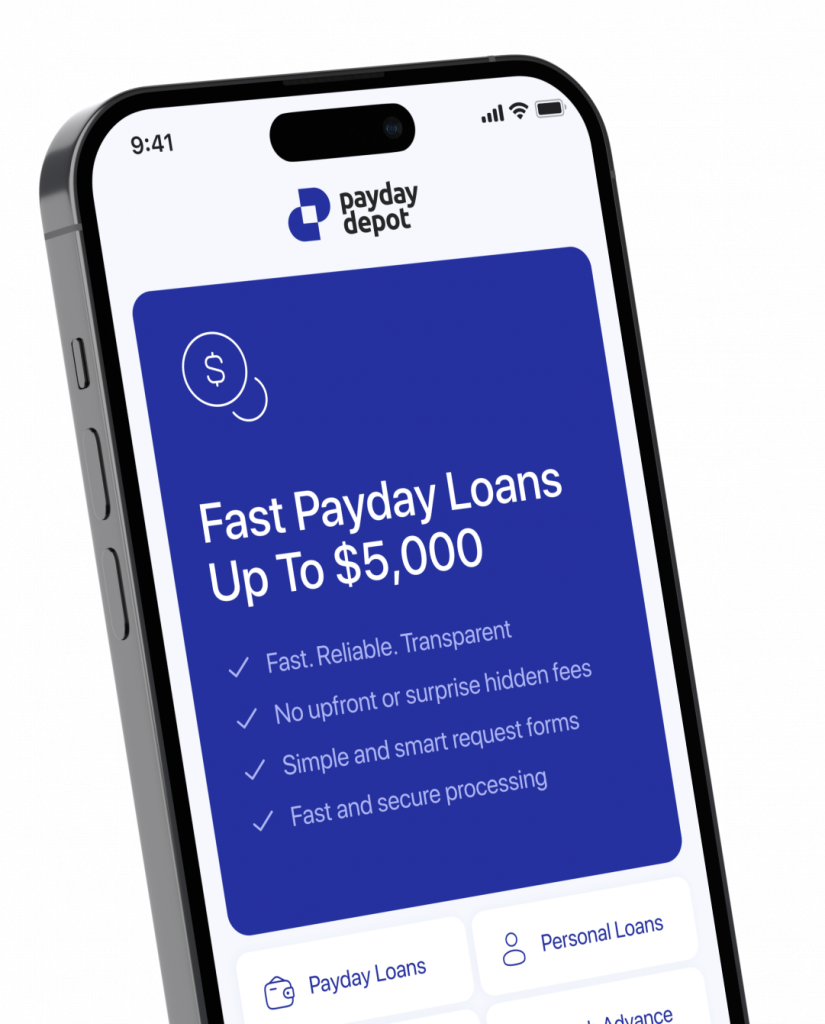Paul Sisolak, a seasoned journalist with 10+ years of experience in print newspapers, transitioned to freelance writing in 2011. His work appears on CNN, Yahoo Insider, and Business Insider. Paul holds degrees in Liberal Arts/Communications and Journalism. Besides writing, he provides proofreading, editing, and research services for quality and unique content. Read more
Payday Loans for Unemployed People
Written by
Paul SisolakEdited by
Katherine FanPayday loans are short-term, high-interest loans that provide a quick influx of cash before the borrower’s next paycheck. Payday loan amounts can range anywhere from $100 to $1,000, with an average of $500.
Payday loans often appeal to unemployed people who may be struggling financially for money to cover basic expenses, since these types of loans can supplement unemployment insurance benefits.
Although there are advantages to taking out a payday loan, they do come with significant risk and should be approached with caution.
Let’s explore the details and plus the pros and cons of payday loans for unemployed people.
Who Qualifies for Payday Loans When Unemployed?
Most payday lenders do not require borrowers to be employed. As long as you have a regular income source such as unemployment benefits, social security or pensions, you can qualify for a payday loan. Lenders primarily look at your income level and consider whether or not you have a checking account to determine your eligibility for a payday loan when unemployed.
To qualify for a payday loan while unemployed, you typically need to provide your lender with the following:
- A minimum monthly income, often $800 to $1,000. Lenders want to see you have enough income to repay the loan. You can meet this requirement by providing proof of unemployment payments or similar financial assistance, such as an unemployment benefits letter.
- An active checking account where the lender can directly deposit funds. Most payday loans require access to your checking account in order to deposit your loan funds and withdraw your repayment later on.
- Valid government-issued identification with photo, such as a driver’s license or passport.
- Be at least 18 years of age.
As long as you meet the lender’s eligibility criteria, you can generally get approved for a payday loan, even while unemployed.
Payday Loan Amounts and Terms
Here’s what you should know about the terms and amounts associated with a payday loan.
- Loan amounts: Payday loans range from $100 to $1,000 for unemployed borrowers who meet minimum income requirements. Loan amounts may be capped at a percentage of your monthly income.
- Loan term: Payday loans are designed as short-term credit to be repaid quickly. The loans typically have terms of two to four weeks, coinciding with your next pay date. This is when the lender expects repayment in full.
- Fees: A typical $100 payday loan can incur a fee between $15 to $30 that is due when the loan is repaid. When considered over a two-week period, that equates to an annual percentage rate (APR) of up to 400%. Payday loan fees are capped in some states, while other states prohibit payday lending outright.
- Repayment: The lender will typically deduct the loan principal and fee directly from your bank account on the agreed repayment date, which is often your next payday. (This is why they are called payday loans). If you don’t have enough funds in your account to repay what you owe, you may incur overdraft fees from your bank in addition to late fees from the lender.
Payday Loans: The Pros
Quick cash: Payday lenders promise fast cash — sometimes as soon as the same day you apply — which can be appealing when you urgently need money. For unemployed individuals waiting on benefits or other income, payday loans provide a short-term cash infusion that can temporarily ease financial stress.
Easy to qualify: Payday lenders generally only require a steady income source, active checking account, and valid ID. They do not check credit scores or require collateral. People who are unqualified typically find it easier to qualify for a payday loan than for other types of loans which may require proof of employment.
Convenient: You can apply for payday loans online in minutes, and receive loan funds deposited directly into your bank account. Accessing fast cash is convenient.
Flexible spending: Payday loans do not restrict how you can spend the money. The funds can be used for any purpose, whether you need money for daily bills, medical costs, car repairs or any other expenses.
Payday Loans: The Cons
High interest rates: Interest rates on payday loans typically range from 200% to over 500% APR after all fees have been factored in. The cost of borrowing against your expected income can quickly add up, making such loans difficult to repay.
Risk of cycling debt: The short repayment terms associated with payday loans often make it difficult to repay your debt in full. Many borrowers end up trapped in a cycle of taking out new loans to cover old ones, which leads to accumulating interest and spiraling debt.
Insufficient income: Unemployed individuals often have limited income from benefits, pensions or other sources. After basic expenses, there may not be enough leftover income to cover high-interest loan payments.
Penalty fees: Failure to repay a payday loan on time can lead to expensive late fees, overdraft fees from your bank, and harm to your credit. Such penalties exacerbate the debt burden you may already be facing from unemployment and other financial factors.
Credit damage: While payday lenders do not check credit scores, failure to repay can result in your payday loan debt being sent to collections, which can damage your credit if reported.
Alternatives to Payday Loans
Payday loans can do more harm than good for unemployed borrowers struggling financially. Consider these less risky alternatives:
- Ask for an advance from your unemployment office, if possible. Some programs allow advances.
- Seek assistance from charities, churches or nonprofits that can provide financial help for necessities such as food or household items.
- Apply for government relief programs such as welfare or Medicaid to help cover immediate financial costs.
- Request payment extensions or modified payment plans from utility companies, landlords, medical providers and other creditors. Avoid late fees where possible.
- Take out a low-interest installment loan from a credit union. These loans typically offer relatively affordable rates and terms that unemployed borrowers can manage more easily.
- Use credit cards strategically for necessities, and quickly pay off the balance when you can. It’s costly to carry a credit card balance, but even credit card interest comes at lower rates than those associated with payday loans.
- Tap into any savings or emergency funds you have or borrow interest-free from family or friends. Avoid paying fees whenever possible to minimize your financial burden. Just be sure to set clear repayment terms to avoid jeopardizing your personal relationships.
- Consider finding temporary, part-time or gig economy work to supplement your unemployment income. Bringing in short-term income can help ease your financial burden.
- Try negotiating with creditors to request additional time to pay bills and loans. Avoid defaulting on your debt, which can further sink you into financial stress.
- See if you can pause payments on federal student loans during unemployment. This prevents your loans from going delinquent.
- Contact your mortgage lender to request forbearance or financial options if you’re struggling to pay on time. You may qualify for assistance.
FAQ
Do payday lenders check if you are unemployed?
No, most payday lenders do not verify your employment status or check if you are unemployed. As long as you have verifiable income and meet other eligibility criteria, you can qualify for a payday loan.
How long does it take to get a payday loan when unemployed?
Payday lenders promote fast access to cash, often as soon as the same business day you apply. Funds are deposited into your checking account quickly after approval.
Can the unemployed get payday loans on benefits like social security or pensions?
Yes, many payday lenders accept social security, disability, pensions, alimony and other sources of regular income besides employment earnings. These income streams make you eligible for a loan.
What happens if an unemployed person defaults on a payday loan?
Defaulting on a payday loan leads to extra fees, constant collection calls, potential lawsuits, wage garnishment and harm to your credit score. Try your best to avoid defaulting on your loan by arranging alternate repayment plans if needed.
Are there payday loan alternatives for unemployed people with bad credit?
Yes, options like nonprofit assistance programs, unemployment advances, payment extensions from creditors, and borrowing from family are possible even if you have bad credit. Avoid predatory lenders, and seek realistic payment plans.


